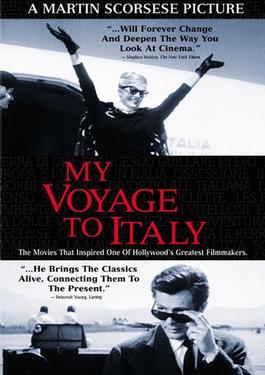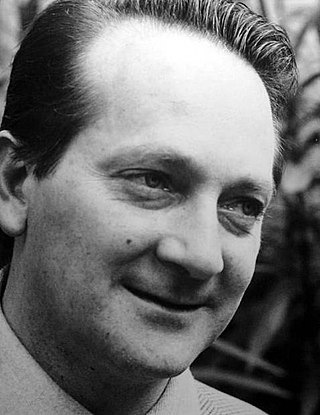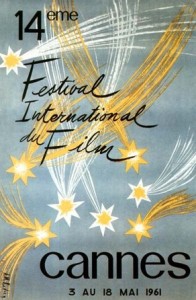
Two Women is a 1960 war drama film directed by Vittorio De Sica from a screenplay he co-wrote with Cesare Zavattini, based on the 1957 novel of the same name by Alberto Moravia. The film stars Sophia Loren, Jean-Paul Belmondo, Eleonora Brown and Raf Vallone. It tells the story of a woman trying to protect her young daughter from the horrors of war. The story is fictional but based on actual events of 1944 in Rome and rural Lazio, during the Marocchinate.
Venetian often means from or related to:
Salome was the daughter of Herodias, and nemesis of John the Baptist.

Elsa Morante was an Italian novelist, poet, translator and children's books author. Her novel La storia (History) is included in the Bokklubben World Library List of 100 Best Books of All Time.

Alberto Pincherle, known by his pseudonym Alberto Moravia, was an Italian novelist and journalist. His novels explored matters of modern sexuality, social alienation and existentialism. Moravia is best known for his debut novel Gli indifferenti and for the anti-fascist novel Il conformista, the basis for the film The Conformist (1970) directed by Bernardo Bertolucci. Other novels of his adapted for the cinema are Agostino, filmed with the same title by Mauro Bolognini in 1962; Il disprezzo, filmed by Jean-Luc Godard as Le Mépris ; La noia (Boredom), filmed with that title by Damiano Damiani in 1963 and released in the US as The Empty Canvas in 1964 and La ciociara, filmed by Vittorio De Sica as Two Women (1960). Cédric Kahn's L'Ennui (1998) is another version of La noia.

My Voyage to Italy is a personal documentary by acclaimed Italian-American director Martin Scorsese. The film is a voyage through Italian cinema history, marking influential films for Scorsese and particularly covering the Italian neorealism period.
The Lovers is a trump or "Major Arcana" tarot card.

Eleonora Brown is an Italian film actress. Her first, and perhaps biggest, role was at age twelve as the daughter of Sophia Loren's character in Two Women (1960).

Two Women is a 1957 Italian-language novel by Alberto Moravia. It tells the story of a woman trying to protect her teenaged daughter from the horrors of war. When both are attacked and the virgin daughter raped, the daughter suffers PTSD.
Marco Tutino is an Italian composer. His emergence during the late 1970s was as the spearhead of an Italian Neo-Romantico group, founded with two other composers, Lorenzo Ferrero and Carlo Galante. He graduated from the Milan Conservatory, where he had studied flute and composition, in 1982.

Marocchinate is a term applied to the mass rape and killings committed during World War II after the Battle of Monte Cassino in Italy. These were committed mainly by the Moroccan Goumiers, colonial troops of the French Expeditionary Corps (FEC), commanded by General Alphonse Juin, and mostly targeted civilian women and girls in the rural areas of Southern Lazio, between Naples and Rome. Mass rapes continued across all the campaign including several locations in Tuscany: Siena, ad Abbadia S. Salvatore, Radicofani, Murlo, Strove, Poggibonsi, Elsa, S. Quirico d'Orcia, Colle Val d'Elsa.

Ciociaria is the name commonly used, in modern times, for some impoverished territories southeast of Rome, without defined geographical limits. Starting from the Fascist period and the creation of the province of Frosinone, the same name was arbitrarily imposed by the local fascist organizations and then misused by the local press, by promotional associations and folkloristic events as a synonym for Frosinone and all the popular traditions of its territory. The local dialect is referred to as campanino in old literature. It is merely a local variants of Central-Italian Latian but is improperly indicated as "ciociaro dialect", although the linguistic and scientific definition is Central-Northern Latian. In more recent times, the term Campagna Romana, or Roman Campagna, a favorite subject of countless painters from all over Europe, has referred to the adjoining region to the north of Ciociaria, but part of the Province of Rome.
The 27th New York Film Critics Circle Awards honored the best filmmaking of 1961.

Mario Soldati was an Italian writer and film director. In 1954, he won the Strega Prize for Lettere da Capri. He directed several works adapted from novels, and worked with leading Italian actresses, such as Sophia Loren and Gina Lollobrigida.
In Italian literature, some folkloric words like Ciociaria and ciociari are used to denote people, film settings, and characters in Italian neorealist works.

Pasquale Festa Campanile was an Italian screenwriter, film director and novelist, best known as a prominent exponent of the commedia all'italiana genre.

The 14th Cannes Film Festival was held from 3 to 18 May 1961. The Palme d'Or went to the Une aussi longue absence, directed by Henri Colpi and Viridiana, directed by Luis Buñuel. The festival opened with Che gioia vivere, directed by René Clément.
Jacques Deval was a French playwright, screenwriter and film director.










